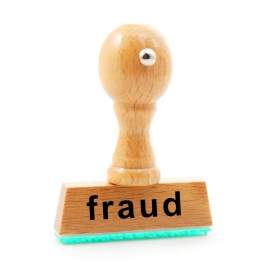
How to Use Online Banking and E-Payments

Online banking practices represent a new development for the functioning of America's economic system and the economic system of the world. At the same time that these practices provide cheaper and more convenient methods to perform banking actions, they also undermine regulations and rules that have extended for years prior, when no such methods existed.
This does not mean that online banking practices are bad, but it does mean that considering their place in the overall structure of business law in America is important, as simply integrating them without a thought under America's banking laws and regulations is not a viable possibility.
Background
Online banking is a natural outgrowth of advances in communications technologies. In the 1980s, the first attempts to implement some form of online banking system cropped up, and though these attempts were failures, the seeds of the later online banking system had been planted. The success of online banking since then was a direct result of the technology improving and becoming more convenient for the common user.
One of the flaws of the original 1980 form of online banking was that it would require consumers to buy a dedicated piece of equipment. Now, however, most people in America have some form of computer with access to the Internet; even phones have reached a point where they can give access to online banking websites. As such, online banking has become much more convenient than banking through physical transactions at the bank itself because an online banking service is so much more accessible.
Furthermore, the additional services offered by online banking only make it all the more appealing, as information can be exchanged very rapidly and a customer would be able to enact changes to his or her account at any time (though these changes might not be processed right away). This has allowed purely online banks to spring up. These banks would have no physical location, but would offer all the same services of a standard bank thanks to the facility granted by Internet banking.
The Internet has also increased the value of e-payments for similar reasons, as they are very convenient and allow for transactions between parties that may not be located anywhere near one another. To find out more about the basic background of online banking and e-payments and why they are so effective in today's world, click the link.
Banking Services Provided Online
Banks often offer a number of different services for their customers, online or otherwise, especially as one of the primary enticements that any bank can use to attract a new customer is a promise of certain online services in addition to any standard services the bank might offer. Some of these services are transaction services, meaning that they are services with which a customer may make transactions in his or her online bank account. These could include transfer transactions, wherein a customer transfers money from a checking account to a savings account, or vice versa, and they might include payments.
These payments are often used to pay bills, as banks will often offer their online customers an aggregation service which will compile all of the customers' different bills into a single transaction, which the customers could then pay online through the bank. Using these payments online would likely save the customer a fair amount of time and would save all parties involved the cost of mailing the bills, or mailing back a response, along with the cost of the paper involved.
Banks may also offer non-transaction services, the most common of which are likely to be account statements which a customer can access quickly and easily at any time. Banks may even offer up the services of their employees for help online so that a customer can get in contact with banking personnel easily through the website.
Online banking services might also include services that can condense banking information into easily "translated" form so that the banking information can be quickly plugged into accounting software of some form. Follow the link for more information about the many services that banks can provide for their customers online.
Regulation and Compliance
Regulation of online banking is a difficult matter because many regulations which were designed to regulate banks in the past might encounter some difficulty when they are viewed in light of an online banking service. Some of these regulations are primarily focused on elements of the bank that are physical, and therefore, would not apply to online banks. But some steps have been taken to ensure that some of the regulations put into place in the past do extend to cover online banking, especially as online banking rises into prominence.
The Uniform Money Services Act, for example, ensures that all money is treated the same under Government regulations, whether it is real money or e-money used in online banking or online transactions. Furthermore, online banks are still banks, and therefore, they have to comply with many of the most basic standards of banks, including rules concerning the bank's role as an agent acting on behalf of customers. Regulations are also in place which would protect customers in online banking from wrongdoing on the part of fraudsters and the like, much as customers would be protected from fraud in physical banking.
The primary methods of ensuring that an online bank is legal, to the extent that such banks fall under legal purview for the time being, is to ensure that it is a member of the Federal Deposit Insurance Corporation, thereby proving that the bank has some level of validity to it and that its customers are protected from the bank's potential failure. To find out more about banking regulations and compliance, and how they interact with online banking, click the link.
Protecting Privacy with Online Banking
When banking online, one of the primary concerns that may arise is that the customer's information is going out into the Internet, where, to many individuals, security feels inherently more lax. It is true that there are hackers who are able to use the information of those individuals who perform online banking to break into those customers' accounts and steal large sums of money. But online banking services work very hard to ensure customers' safety from attempts to penetrate their online privacy, as they are required to do under law.
This is because consumers are still protected from fraudulent uses of their bank accounts, and if the banks do make payments based on fraudulent authorizations, then the banks are held liable. As a result, banks implement stronger and stronger security measures for online banking in order to protect both themselves and their customers from attempts to steal information.
In addition to legal policies which ensure that banks have both a desire and responsibility to protect customers from information theft, there are legal policies which extend to the practices of online banking services which would protect customers from having their information given out, be it to third parties or even to Federal agencies. Learn more about privacy and how it is being protected in terms of online banking by following the link.


















